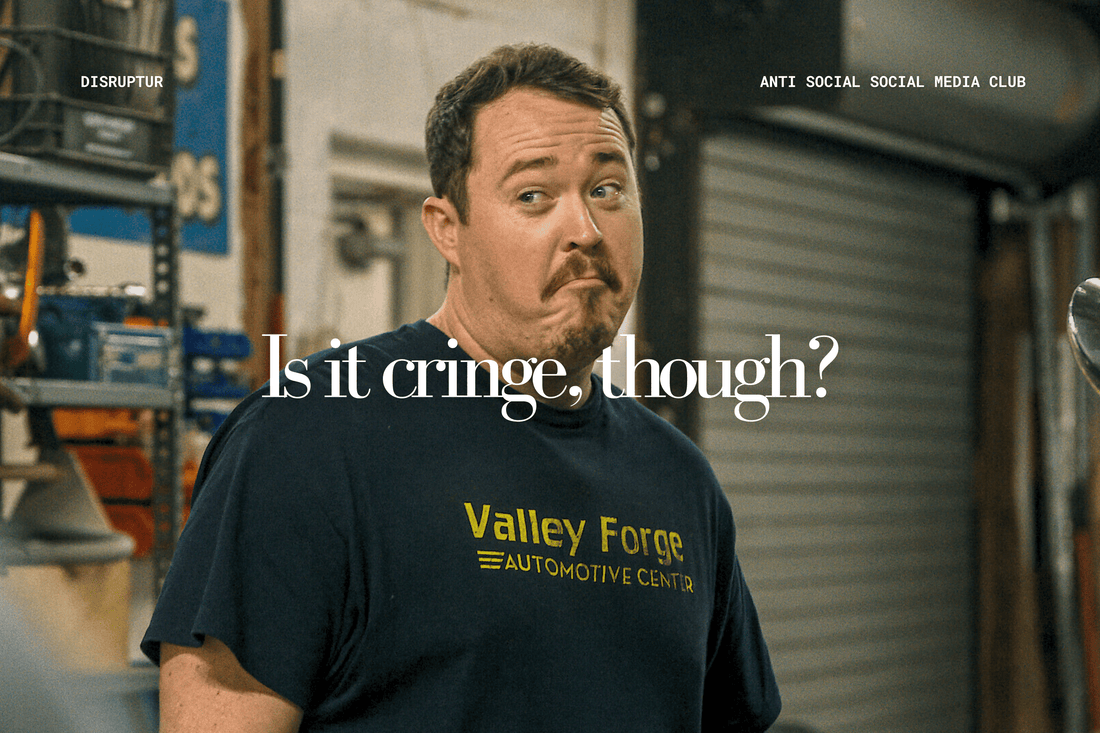What if the people ruining our experience on LinkedIn weren't the ones we're accusing, but rather the other way around?
Instead of those people spamming us with connection requests and AI comments, it was the "oversharing CEO solopreneurs," the engagement seekers, the "broetic influencers," and the "algo simps?"
Lately, I've been wondering about this as someone who has been on LinkedIn since before I joined Facebook in 2008. Until recently, I had never questioned why I joined both of them.
I know how that must sound, considering that for years, LinkedIn was always my preferred social platform for many of the reasons I thought were right. I met some of my best friends on the platform: genuine people with genuine relationships built on substance and shared experiences.
Friends that I do life with. Today, for example, I had breakfast with one of my best friends I met on LinkedIn back in 2017.
Seriously, that's not a joke, and for years, I relished the idea that LinkedIn was to Facebook what Big Brother was to The Bachelor. In case you didn't know, The Bachelor was created for men and women to find love, and LinkedIn is a professional networking site. Although I didn't find love (FYI, never my intent), it did appear to produce more lasting relationships than the other.
It felt like I was part of a club that certain people didn't understand, and because of that, LinkedIn always made me feel like I was supposed to belong.
I joined LinkedIn because I wanted, sorry, I needed a new job, and that was just what you did back then. You would get on CareerBuilder, Monster dot com, and build a LinkedIn profile, and magically, the jobs will find you - and that's exactly what happened. It worked, and from that moment forward, I was hooked. What started as an online resume quickly turned into a platform where I could share things that I was interested in reading about from people who had similar experiences at a similar stage in life to mine. LinkedIn had become a very appealing community where I felt I always belonged.
But then there was this almost 'cosmic-like shift' on the platform, where organic reach appeared to be dying off, engagement pods became a thing, AI started dominating my home feed (and the comment section), and paying to play seemed inevitable.
Out of nowhere, I started lending more of my attention to what I was reading what I was engaging with and ultimately began to do something I should have known would have been imminent but never thought possible; I second-guessed not what I wanted to say, but how I wanted to say it because somewhere in the middle of this cosmic shift in the platform started asking myself, "what type of content is considered cringe, and am I contributing to it, or am I not?"
As I read through the content, deciphering what was real, what was clickbait, what was "trying too hard," and what was too personal, too casual, too curated, too corporate, or too forced, all I could think of was "Where do I fit in all of this?" Or, to be even more transparent, why do I even want to share my thoughts when I know I'm surely not the only one questioning this?
I would ask you the same question, but it's rhetorical at this point.
To be clear, I've never been on the "Backward hat guys" train of thought of "you need to show up on LinkedIn every day, regardless, because that's who you will get seen." I can assure you I've never posted once in my life because I felt like I had to, but now here I am, walking the tightrope between virtue signaling and spectacle. Although I may not care on the surface about what others think, I can't help but wonder: "Was my last share going to end up on a subreddit somewhere for others to scrutinize my attempt at authenticity as a potential overshare?
There appears to be a cringeworthy conundrum at play, and until I searched for the phrase "cringe content" on the platform, I hadn't realized it existed.
Apparently, there are two camps:
There's the camp that classifies content as cringe, and then there's the camp where people know they're sharing cringe content and don't care, or at the very least, stand up for their cringeworthy content because "cringe" has been the one thing they've contributed to their success.
It's obvious now that what some find cringeworthy is just as eagerly interpreted by another group as a sign of vulnerability & strength.
Conundrum or not, I'll never stop sharing stories. Although I'll likely constantly second-guess the platforms I choose to host those stories, I won't ever lose the perspective I've gained from sharing honest content I've written over the years on LinkedIn or anywhere, for that matter.
I will, however, be more self-aware of what I'm writing and the stories I'm telling, regardless of my intent, may be ruining the experience for someone else.
Thanks for following along,
Derek



